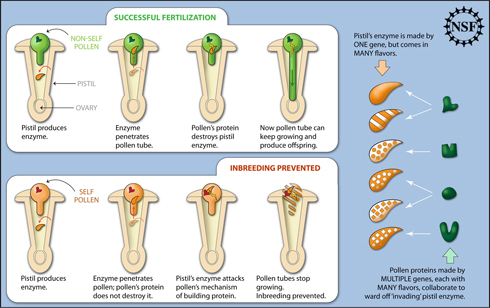A Bug’s (Sex) Life: Diving Beetles Offer Clues About Sexual Selection
*Studies of diving beetles suggest sperm evolution may be driven by changes in female reproductive organs, challenging the paradigm of post-mating sexual selection being driven mostly by competition among sperm.*
Studying female reproductive tracts and sperm in diving beetles (Dytiscidae), researchers from the University of Arizona and Syracuse University have obtained a glimpse into a bizarre and amazing world of sperm that can take on a variety of forms – including joining together into conglomerates that navigate the twisted mazes of the female reproductive tract.
Analyses of the evolutionary relationships among diving beetles reveal that sperm form appears to follow function dictated by female reproductive organs. (more…)

